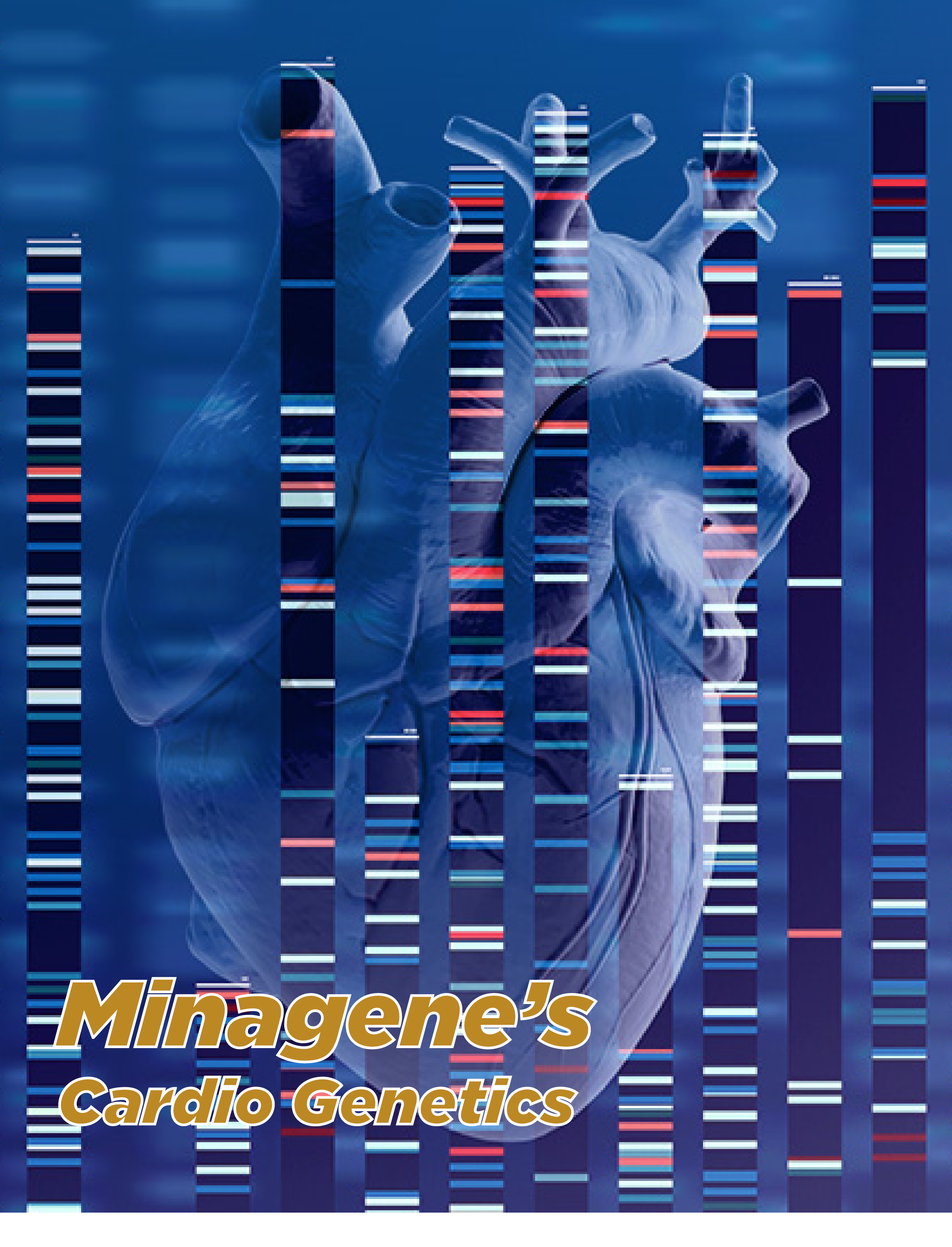
Overview
Minagene's Cardio Genetics is an advanced genetic testing service that focuses on uncovering the genetic basis of cardiovascular disorders. By analyzing specific genetic variants associated with various heart and vascular conditions, this comprehensive test provides valuable insights into the molecular underpinnings of these disorders, enabling accurate diagnosis, personalized treatment strategies, and improved patient care in the field of cardiology.
Methodology
The Cardio Genetics test utilizes cutting-edge genetic analysis techniques, including next-generation sequencing and targeted genotyping, to examine genes known to be associated with cardiovascular disorders. By analyzing an individual’s genetic profile, this test provides clinicians with crucial information regarding disease-causing variants, potential disease progression, and response to specific treatments.
Key Highlights of the Test:
Precise Diagnosis: The Cardio Genetics test enables precise diagnosis by identifying genetic variants associated with a wide range of cardiovascular disorders. By uncovering the underlying genetic factors contributing to a patient’s heart or vascular condition, clinicians can achieve a more accurate diagnosis, leading to tailored treatment plans and improved patient management.
Personalized Treatment Strategies: By analyzing an individual’s genetic profile, the test helps in developing personalized treatment strategies for cardiovascular disorders. It provides insights into potential drug targets, response to specific medications, and the likelihood of disease progression, allowing clinicians to optimize treatment plans and achieve better therapeutic outcomes.
Identification of Disease-Causing Variants: The test identifies disease-causing genetic variants associated with various cardiovascular disorders, including inherited cardiac conditions, arrhythmias, cardiomyopathies, and aortic diseases, among others. This information helps clinicians understand the genetic basis of the disease and provides valuable guidance for patient management and counseling.
Proactive Disease Management: Genetic information obtained from the test allows for proactive disease management by identifying individuals at higher risk of developing certain cardiovascular disorders. This enables early intervention, regular monitoring, and the implementation of preventive measures to mitigate the progression or severity of the condition.
Research Advancements: The Cardio Genetics test contributes to ongoing research efforts in the field of cardiology. By analyzing a large cohort of patients with diverse cardiovascular conditions, the test generates valuable data that can be used to further understand the genetic basis of these disorders, develop novel therapies, and advance the field of precision medicine in cardiology.
Diagnostic Dilemmas: The Cardio Genetics test is particularly valuable in cases where traditional diagnostic approaches have been inconclusive or when there is a suspicion of a genetic component underlying the cardiovascular condition. It can provide crucial insights into the genetic basis of the disease, leading to a more accurate diagnosis and appropriate management strategies.
Inherited Cardiac Conditions: The test is beneficial when evaluating individuals with a family history of inherited cardiac conditions, such as hypertrophic cardiomyopathy, long QT syndrome, or familial hypercholesterolemia. It helps identify disease-causing genetic variants, predict disease progression, and guide treatment decisions for affected individuals and their family members.
Arrhythmias and Conduction Disorders: The test assists in the diagnosis and management of arrhythmias and conduction disorders, including atrial fibrillation, ventricular tachycardia, and Brugada syndrome. It identifies genetic variants associated with these conditions, provides prognostic information, and helps guide treatment decisions for affected individuals.
Cardiomyopathies: The test provides insights into the genetic basis of cardiomyopathies, such as dilated cardiomyopathy, restrictive cardiomyopathy, and arrhythmogenic right ventricular cardiomyopathy. It helps identify disease-causing genetic variants, predict disease progression, and guide treatment strategies for affected individuals.
Aortic Diseases: The Cardio Genetics test can provide insights into the genetic basis of aortic diseases, including thoracic aortic aneurysms and aortic dissections. It helps identify genetic variants associated with these conditions, predicts disease progression, and assists in selecting appropriate management strategies for affected individuals.
Research and Clinical Trials: The test contributes to ongoing research efforts and clinical trials in the field of cardiology. By participating in genetic studies, patients can help advance knowledge about cardiovascular disorders, potentially leading to the development of new treatments and therapeutic approaches.

